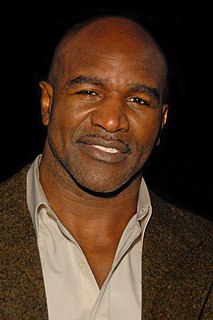A Quote by Karl Mannheim
[W]hen the empirical investigator glories in his refusal to go beyond the specialized observation dictated by the traditions of his discipline, be they ever so inclusive, he is making a virtue out of a defense mechanism which insures him against questioning his presuppositions.
Related Quotes
?People have presuppositions... By 'presuppositions' we mean the basic way that an individual looks at life- his worldview. The grid through which he sees the world. Presuppositions rest upon that which a person considers to be the truth of what exists. A person's presuppositions provide the basis for their values- and therefore the basis for their decisions.
The challenge of abating one with a genuine ego problem is to not try to put him down. Any and all antagonization, in his mind, is merely compensated for by his own descriptions: his feelings of persecution by the envious and his ideals of worth. Arguably, the genuine ego is more of a circumstantial defense mechanism rather than a steady arrogance in need of starvation.
A good soldier is a blind, heartless, soulless, murderous machine. He is not a man. His is not a brute, for brutes kill only in self defense. All that is human in him, all that is divine in him, all that constitutes the man has been sworn away when he took the enlistment roll. His mind, his conscience, aye, his very soul, are in the keeping of his officer. No man can fall lower than a soldier-it is a depth beneath which we cannot go.
The main thing about Bruce Lee is that, he was a little guy. And you know, his quickness, his aggressiveness, his explosive power, you have to be a great athlete to have all these, his body, his look, you know, all these things have to do with discipline and structure. He was able to go against the biggest guy, regardless of who he was.
Pressed up against him, I can feel the thud of his heart against mine, his ribcase expanding and contracting rapidly against my chest, the warm whisper of his breath tickling the side of my neck, the brush of his leg against my thigh. Resting my arms on his shoulders, I pull back a little to get a look at his face. But he isn't smiling any more.
Instead of replying, Alec reached down and took Magnus's hands. Magnus let Alec pull him to his feet, a questioning look in his eyes. Before he could say anything, Alec drew him closer and kissed him. Magnus made a soft, pleased sound, and gripped the back of Alec's shirt, rucking it up, his fingers cool on Alec's spine. Alec leaned into him, pinning Magnus between the table and his own body. Not that Magnus seemed to mind. 'Come on,' Alec said against Magnus's ear. 'It's late. Let's go to bed.
The master in the art of living makes little distinction between his work and his play, his labor and his leisure, his mind and his body, his information and his recreation, his love and his religion. He hardly knows which is which. He simply pursues his vision of excellence at whatever he does, leaving others to decide whether he is working or playing. To him he's always doing both.
The marriage tie becomes possessed of a history and takes to itself traditions. This history and these traditions form a great fund, to which changing conditions and growing imagination constantly add. And the traditions, more especially, bear heavily upon the individual, overmastering his natural expression of the love instinct and forcing him to an artificial expression of that love instinct. He loves, not as his savage forbears loved, but as his group loves.
At one point, for example, [Donald Trump] argued that he knew much more than military leaders about the pursuit and defeat of ISIS. His assuredness of his own correctness seems also rooted in arrogance reflecting his fundamental insecurity. This insecurity and his belief in his own rightness, when combined with his success at making money, leads him to be self-reliant in his decision-making, which could result in his taking risks with threatening or using nuclear weapons.





































